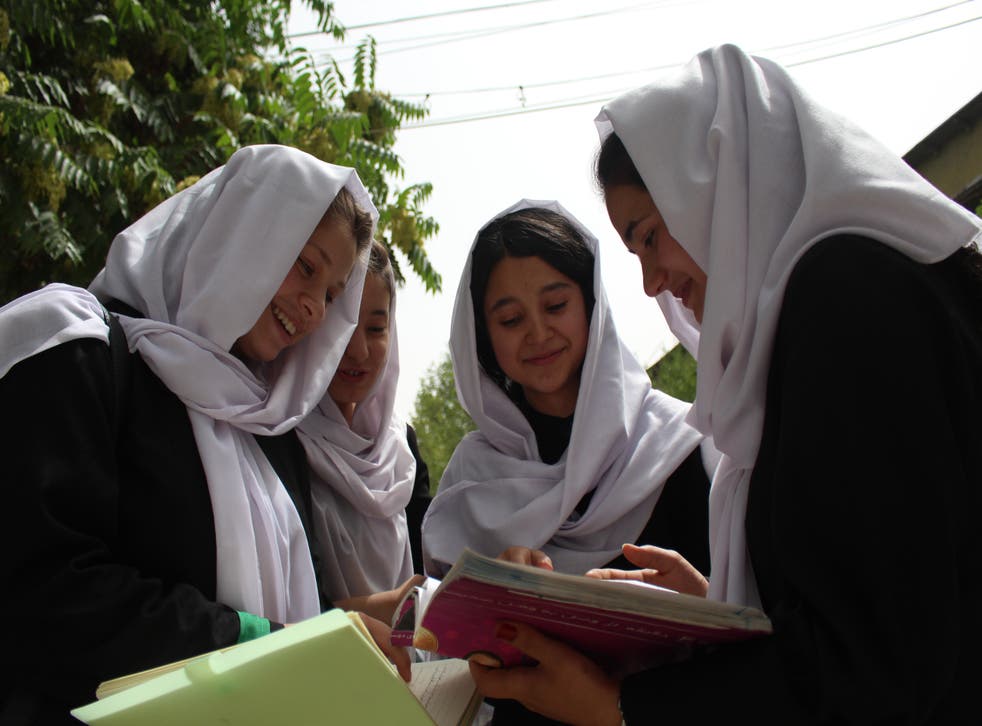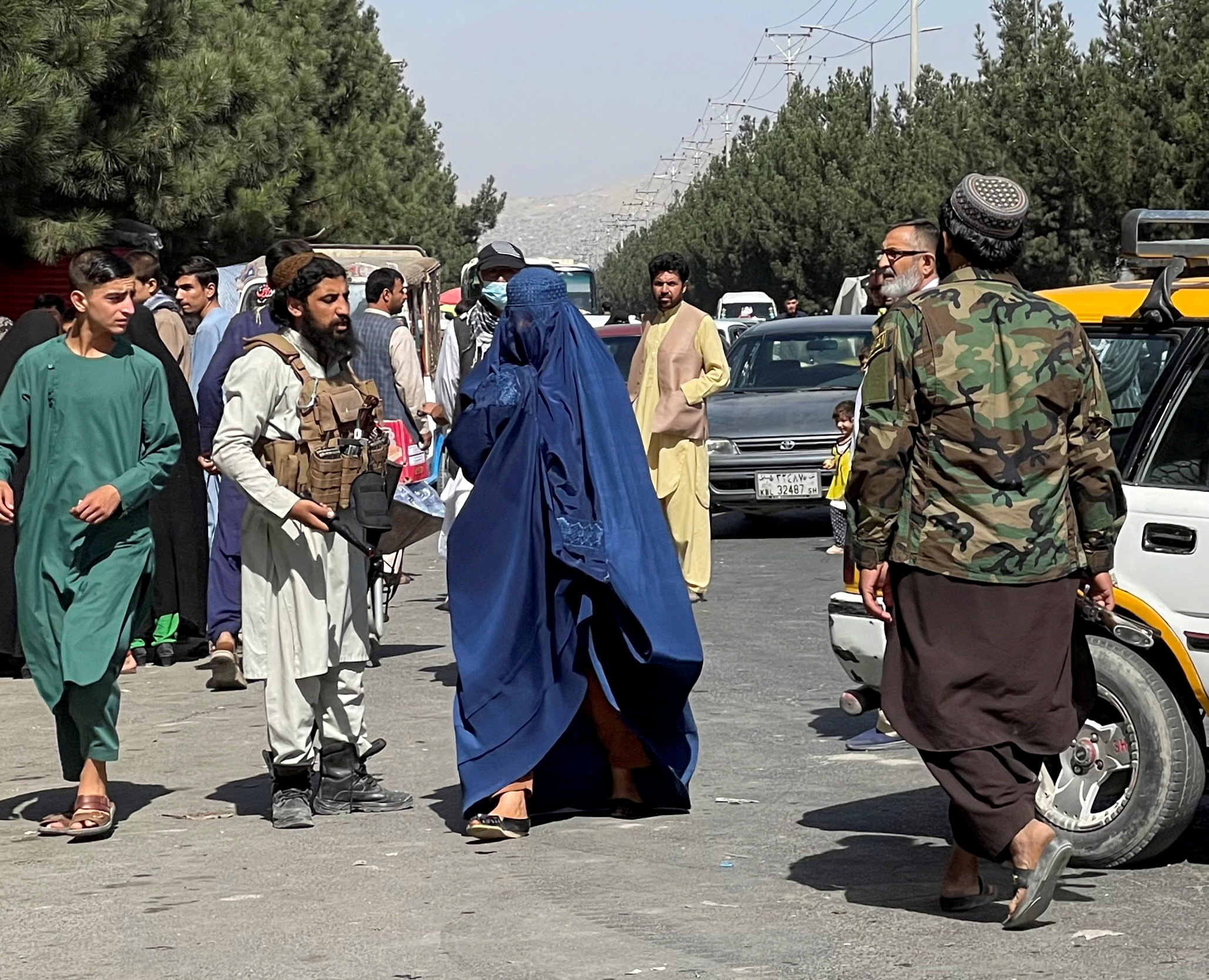
Jacquelyn Martin/AP
Many of us are hoping for a changed Taliban that will demonstrate that it is different now – compared to what it was during 1996-2001 – by allowing girls and women to educate and work. Although some positive signs are coming out of Afghanistan in this regard, the miracle that we have been waiting for and hoping to see will most probably never arrive.
There are many reasons for this, some of which I will present and elaborate on below. But first, I want to point out that what I know about what is happening in Afghanistan is from media reporting and expert analyses. I know how unreliable these sources are and can be when trying to form an independent, objective understanding of the unfolding situation in Afghanistan.
I have not been to Afghanistan, nor have I talked to Afghans from different backgrounds to develop a better understanding of what’s going on inside the country right now and since the defeat of the West by the Taliban. My opinion which I express and elaborate on below is based on my knowledge gained from reading, listening to news reports and analyses and personal experiences with ‘Taliban-type people’ that I am familiar with among Bangladeshis and Pakistanis in the UK, and Bangladeshis in Bangladesh.
If you look at the examples and instructions of Prophet Muhammad, empowered consent in marriage, especially for girls, was clearly and explicitly established in the early 7th Century during his lifetime. But, based on what I know and understand, during most of the history of Islam, young girls were married off to older men and in many cases much older men without any degree of real consent. Of course, as Islamic marriages require consent, formality was mostly observed as before a marriage ceremony could be completed witnesses had to hear the couple giving consent, including the girl, as required by Islamic law. But other than the formality, in many cases, pressured consent, which could not be rejected, was used to pressure young girls, or any girls for that matter, to marry the husbands chosen by parents and communities as they could not go against their dictates.
Girls were also married off at a very early age, mostly to older men, some to even old men. The girls were not educated and were only taught how to be a wife and a mother to serve others. This has been the fate of Muslim girls everywhere until recently. It is also clear to me that societies everywhere had disdain for girls and women, feared them and tried to keep them undeveloped so they could be controlled to serve men in patriarchal societies.
Many people from a Muslim background currently living in the UK, or even from Sikh and Hindu backgrounds, may not realise how bad it was for girls and women in the past, even a few decades ago. And even girls and women from a British white background experienced many improvements to their low status and life situations during the last few decades. I have witnessed that for myself. I won’t go into details, but it was not good, especially for Muslim girls and women. I know I am generalising as you will find many households that were different, but my generalisation is a true experience of far too many girls, whose life have been blighted by their forced undevelopment and lifetime trauma and unhappiness.

But was this only a Muslim practice? No, it was not. In most places in the world, this was also the norm until recently. So, the Taliban, in trying to establish an Islamic Emirate, may end up creating something that was a practice all over the world, not necessarily something to do with Islam as a religion. Their emirate may end up, in reality, not an ideal Islamic system but the recreation of a past system where women had no place that was part of how the Christians, Jews, Hindus and many others organised and developed their societies, cultures and traditions.
Now, about the ‘Taliban-type people’. Here, I will discuss some traits among them that will determine the life of Afghan girls and women under their rule. There are two elements involved in creating the ‘Taliban-type people’. First, there is an inherited fear and distrust of and disdain for women that most societies had in the past and some still do. This makes women always the object of worry and suspicions and the potential cause of shame and loss of honour. Second, because they come from a society that is strictly segregated, men mostly learn about women from other men and the inherited anti-women prejudice and the fear of the female sex that are so deep and widespread.

The ‘Taliban-type people’ do not understand girls and women and have no empathy for them as they have not had the opportunity to learn about them directly by interacting with and listening to them. In such a situation it is impossible to see how the situation can improve for Afghan women – especially concerning education, higher education, employment, entrepreneurship and personal freedom. Of course, through outside pressure and gentle encouragement by friendly countries like Qatar, Turkey and Pakistan, there may be cosmetic changes, which may be an improvement compared to their previous period of rule during 1996-2001, but girls and women will still live in a slave-like or prison-like condition for the foreseeable future under the Taliban rule.
If Taliban rule implodes from within and is replaced by something else, this will certainly not be the panacea for the plight of girls and women in Afghanistan, as instability and conflicts will undoubtedly continue and prolong their miserable life.
As long as the ‘Taliban-type people’ remain ignorant about girls and their dreams, desires, capabilities and potentials, they will not know how to relate to women and, as such, fail to create the facilities and opportunities for the needs and desires of women in their Islamic Emirate of Afghanistan.
I hope I am wrong!